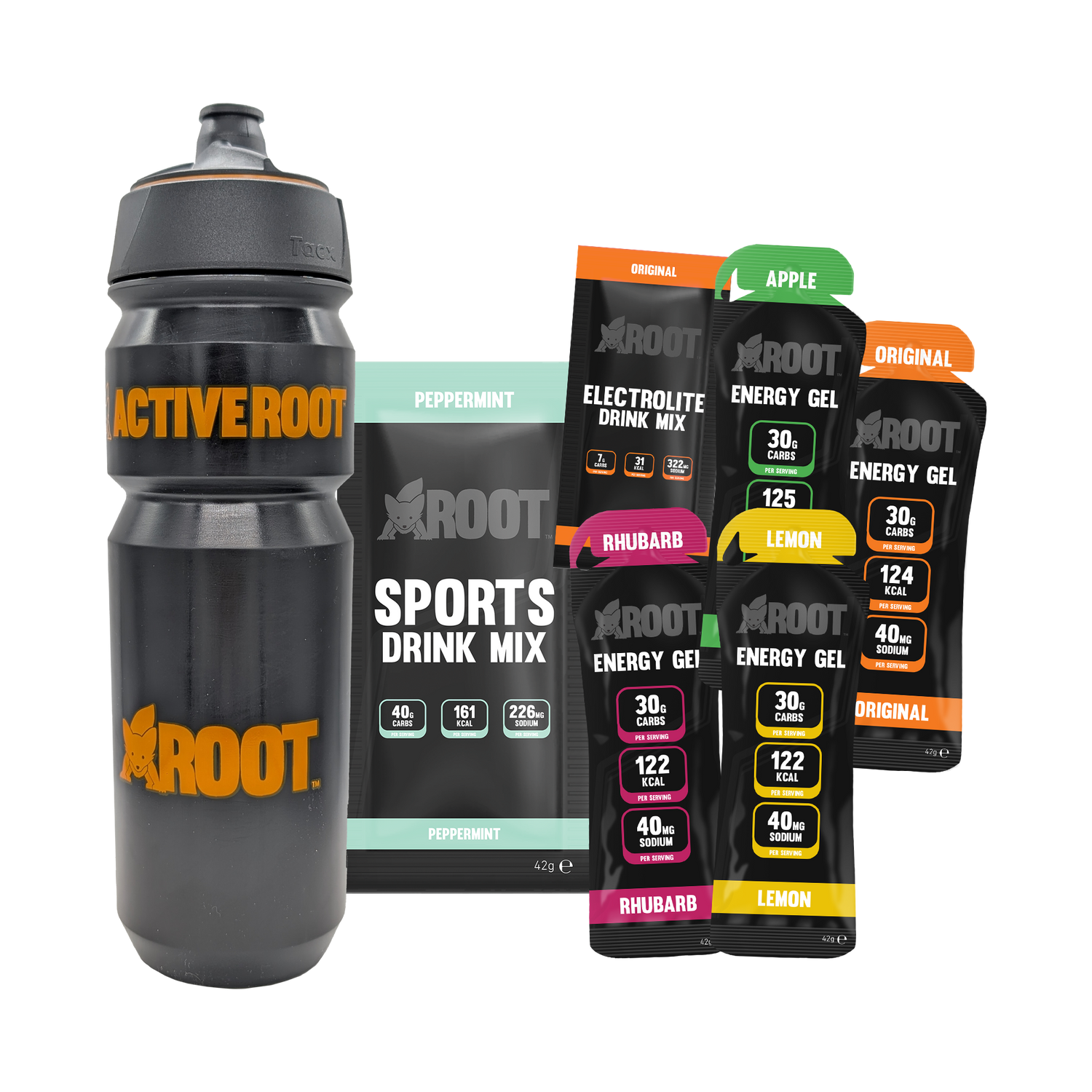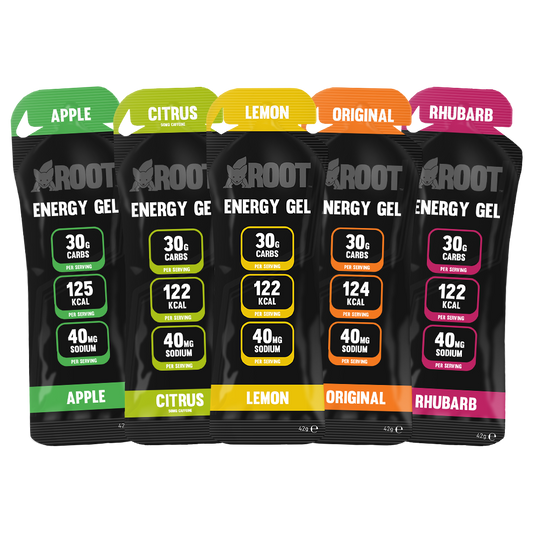
Tips for your first Ultra Marathon - Donnie Campbell
Shopify APIDonnie Campbell is one of Scotland’s most experienced and successful ultra-runners. In the summer of 2020 Donnie smashed the Munro record, climbing all 282 Munros self-propelled in only 31 days, breaking the previous record of 39 days! This impressive feat involved 1500km of running and more than 1200km of biking, all fuelled by over 200 litres of Active Root.
Getting Started
Enter an Ultra Marathon
This will give you a goal to aim for and will help keep you focused and motivated. I would suggest choosing an ultra-marathon that you are likely to enjoy, so if you like road running then I would enter a road ultra or if you prefer trails then enter a trail ultra etc. Also, be realistic with your target. As a first ultra-marathon I would suggest going for something like 50 to 80km and giving yourself plenty of time to train for it. If you have already run a marathon you may want to give yourself 4-6 months depending on distance but if you have never run anything longer than a half marathon then I would give yourself 10-12 months to build up to it.
Join a Running Group or Get a Running Partner
There are so many benefits to joining a running group or having a running partner especially if they have some ultra-marathon experience. It can increase motivation and adherence to your training as you are less likely to miss a session if you have to cancel on someone. Also if they have ultra-marathon experience then you will be able to get some tips from them. My favourite reason is it makes running more sociable and there is nothing I like more than going away for a weekend with friends to run in the hills.
Running is a Skill
Just like kicking a football, running is a skill. Yes everyone can run but some people run more efficiently than others, just like everyone can kick a football but David Beckham can kick a football more effectively than me. So it is worth while working on your running form as this will reduce the risk of injury and increase your efficiency. This is where Strength and Conditioning training will help but my best advice is to find a good running coach that you get along with as they will be able to help you develop your running biomechanics.
What To Expect
Prepare for the Worst
Running an Ultra Marathon can be a brutal but a really rewarding experience and a lot of people will DNF not because they haven't done enough training but because they have not prepared mentally. So if you prepare yourself and acknowledge that it will probably be that hardest thing you have ever done and you are likely to feel exhausted, cold and nauseous then you will be ready if it does happen. The brain is a powerful tool and there are loads of things you can apply from Sports Psychology, like goal setting, positive self-talk, acceptance etc to help you make the finish line. I recommend all my athletes to read the Chimp Paradox by Dr Steve Peters to help them improve their mental toughness.
Don’t try and Copy the Elites
You may hear of some elite and experienced ultra-marathon runners logging 100miles plus a week and there is nothing wrong with this because they have built up to this over years. I would not try and log a 100miles a week for your first ultra-marathon as first of all you don't need to run these distances to complete a 50-80km ultra marathon. Secondly increasing your training load too rapidly will significantly increase the risk of getting injured. You should not increase your weekly training load by more than 10% and every 4-6 weeks you should have a slightly easier week as it take your body 4-8 weeks to adapt to a training load.
Have Fun
Most importantly, enjoy it!
Recommended Kit
Check the Kit List
Most races will have a mandatory kit and a recommend kit list. So this will dictate what kit you will need. Think about the environment you are going to be running in and how long you are going to be out for and plan to carry enough kit that will be able to keep you safe if the weather turns for the worse or you get into trouble.
Kit I Carry for a Long Training Run in the UK Hills:
Waterproof Jacket (wind breaker if it is a nice summers day)
Waterproof Trousers
Spare Warm Top (Winter)
Gloves
Survival Bag (Autumn, Winter, Spring)
Foil Blanket (Summer)
Food and Water for length of run
Mobile Phone
GPS / Compass Map
General Training Tips
Speed Work
No matter what race distance you are doing, speed work is important, as if you keep increasing the distance and time you run and don't do speed work your pace will become slower. I recommend at least 1 speed session a week depending on what race and fitness level you are at. The most common speed sessions are Interval, Fartlek, Hill repetitions and Tempo Run. I would also make your speed sessions specific to what type of race you are doing, if it is predominately flat then you might do more Interval on the flat where if you are doing a mountain or hill trail race then you will want to do more hill reps etc.
Cross Train
Cross Training can be really effective as it can reduce the risk of injury especially if you have just started running while still improving your cardiovascular and muscular endurance. Cross training also means in some cases you can still train even when injured to maintain your fitness. Types of cross training I recommend for running are core workouts (stomach and back muscles), cycling, yoga, Pilates, swimming and walking, basically anything that gets your heart above its resting rate and holds it there for at least 30min!
Change Eating Habits
You can’t out train a bad diet! So even if you train like an athlete, if you have a poor diet and consume more calories than you burn you will put weight on which is not good as you will have to carry that extra weight over an ultra-marathon! As a Coach I don't like to put people on diets as they are only a short term measure, instead I like to try to change the eating habits and behaviours this way once they have lost the weight they will be able to keep it off as well. I recommend only making a few changes to your diet at any one time this way it increases the chances of sticking to it and are less likely to fail and give up. So for example change semi skimmed milk to skimmed milk and white bread to brown bread, once this has become a habit then I would look at changing something else like limiting chocolate to one bar a week and so on.





